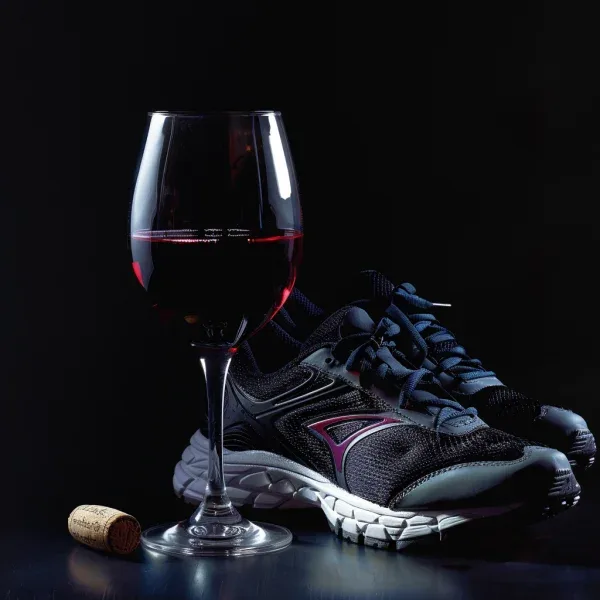by Gemma Delaney

Many of us have participated in alcohol-free initiatives such as No-Drink January, but do we truly understand the impact of alcohol on our health, fitness, and weight? Dietary expert Annabelle Graham uncovers the hidden consequences of your favorite cocktails and provides tips on maintaining a healthy relationship with alcohol.
It’s no secret that over-consumption of alcohol has detrimental health effects. Recent data show an alarming increase in fatalities caused by alcohol misuse. Even controlled drinking can negatively impact many aspects of life including mental well-being, productivity, and personal relationships. But what happens when you enjoy that occasional glass of wine with dinner or toast some bubbly with friends?
Past beliefs suggested occasional drinks could have health benefits. However, the current narrative indicates any level of alcohol consumption could have negative implications. Let’s delve into the effects of alcohol on your body…
Alcohol’s Impact on the Body
Alcohol, or ethanol, is obtained through the fermentation of grains, fruits, or other carbohydrate-rich foods. It contains seven calories per gram and acts as a source of energy. This means consistent intake of alcohol along with your meals could lead to weight gain.
The extent of alcohol’s impact on your body correlates to the dosage you consume. Alcohol acts as a depressant to the central nervous system and gets processed in the liver into the toxin acetaldehyde. This toxin is metabolized into excretion-friendly compounds, carbon dioxide, and water. However, the human body can only process a certain amount of alcohol per hour.
Alcohol and Weight Gain
As your body metabolizes alcohol, there is a marked decrease in fat burning activity. Focusing on toxin breakdown, your body suspends the digestion of other nutrients, meaning the fats and carbohydrates you consume would be stored as body fat or glycogen.
If you’re trying to lose weight while occasionally drinking, ensure you limit your drinking to once per week. Stay conscious of your calorie intake and refrain from consuming fatty or sugary foods while drinking.
Alcohol’s Impact on Fitness and Performance
If you’re aiming to boost your fitness outcomes or build muscle, you need to monitor your alcohol intake as it can nullify your conditioning efforts.
Alcohol’s diuretic nature contributes to dehydration and electrolyte imbalance, increasing fatigue, slowing reaction time, and enhancing the risk of cramps and muscle strains. Moderate drinking can impair muscle growth, affect protein synthesis, and hinder muscle recovery. Hormonal imbalances caused by alcohol also reduce muscle growth and recovery capacity. Additionally, alcohol can disrupt sleep patterns, crucial for good performance.
Decoding Moderate Drinking
The concept of ‘moderate drinking’ differs globally. In the UK, it is defined as consuming no more than 14 standard drinks per week. It’s recommended to have several alcohol-free days per week. Understanding that alcohol concentration and serving sizes widely vary is vital.
Curbing Cravings
Want to better manage your cravings? Implement these tips:
- Include protein-rich foods in your diet to balance blood sugar levels and reduce cravings.
- Take L-glutamine, an amino acid that helps reduce cravings and supports post-exercise recovery.
- Incorporate fruits that support dopamine production into your snacking routine.
- Stay hydrated; dehydration can trigger hunger and cravings.
- Adopt a flexible dieting approach that accommodates social events without impacting your fitness goals.
Enjoy Alcohol-free Beverages
If you want a drink without the alcohol, here are a few mocktail recipes to try:
Cherry Rickey: Mix Bax Botanics Verbena, fresh lime juice, cherry concentrate, and diet tonic. Pour over crushed ice, garnish with lime, cherries, and mint.
Peach Fizz: Combine peach puree, a drop of natural vanilla extract, and Wild Life Botanicals Blush. Serve in a champagne glass.
Non-alcoholic beers are also gaining popularity. Athletic Brewing Company, for instance, offers great-tasting alcohol-free brews.
Through mindfulness, moderation, and a well-balanced diet, you can maintain a healthy relationship with alcohol while advancing towards your health, fitness, and weight loss goals.
Alcohol effects, health and fitness, weight gain management, moderate drinking, alcohol-free recipes, mindful drinking, non-alcoholic beverages.
Leave a Reply